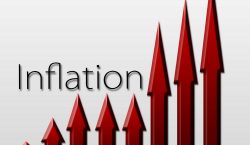

FOREIGN investors remain coy about investing in the country’s equity markets due to over-regulation and policy inconsistency, a local investment and research firm has said.
In a recent investment note, Imara Asset Management (Imara) said the continued suspension of Old Mutual Zimbabwe shares from trading on the Zimbabwe Stock Exchange remains a drawback and a push-off factor for foreign investors seeking investment opportunities in the country’s markets.
Fungibility of the counter —along with two others — was suspended in July 2019, with the government claiming that speculation involving the counters was driving up inflation. This was followed by an outright ban on the trade of the counters, which remains in force.

David Nyabadza, Zimbabwe Insurance and Pensions Apex Council chairman
“Foreign investors still have funds tied up in Old Mutual shares that they are not allowed to sell even in South Africa or the UK following the shares’ suspension back in June 2020, when the government was panicked into closing the entire ZSE, again in the false belief that it was the ZSE that was causing the devaluation of the ZWL rather than the ZWL monetary expansion.
“Not surprisingly foreign investors see Zimbabwe as a country with a stock exchange that is closed to their business. Further, they remain deeply suspicious of the VFEX. There are plenty of opportunities for them elsewhere in the world,” read part of the research note.
This also comes as the Zimbabwe Insurance and Pensions Apex Council (Zipac) has been lobbying for concessions on trading in the suspended stocks.
The industry representative body, which is the major investing constituency in the country, has long insisted that the continued suspension of the counters is hurting its members.
Speaking at the Treasury’s consultative meeting with the industry earlier this year, Zipac chairperson David Nyabadza said the government should allow investors holding the suspended counters to trade them on external exchanges.
“It would be great if the suspension can be lifted entirely, but if it cannot, allowing trade offshore would give our members an opportunity to raise liquidity in line with offshore investment guidelines,” Nyabadza said.
The ZSE has been engaging Old Mutual and PPC with a view to having their listings moved to its subsidiary, the Victoria Falls Stock Exchange (VFEX), after Seed Co International, which was also suspended on the ZSE, moved to the budding exchange in 2020.
The ZSE Industrial Index peaked at 93 000 points at the end of April, fell to 65 000 by the end of June, and hit a low of 41 000 in mid-September.
“The initial falls were caused by the government’s attempt to hit share prices in the false belief that it was the ZSE that was one of the causes of the depreciating currency.
“The moral suasion of the Public Service Commission Pension Fund and Nssa to reduce their equity holdings together with the sharp increase in capital gains tax on short-term gains initiated the decline.
 “The 200 percent interest rates then forced individuals and corporates to sell equities as a source of ZWL liquidity. Such a fall is unprecedented given the current strength in the underlying businesses of listed companies. In US$ terms the falls were even more marked.
“The 200 percent interest rates then forced individuals and corporates to sell equities as a source of ZWL liquidity. Such a fall is unprecedented given the current strength in the underlying businesses of listed companies. In US$ terms the falls were even more marked.
“As we had written in previous notes, valuations of listed equities in US$ terms were fairly valued during 2021 and early 2022. By mid-September valuations stood at their lowest levels since September 2008 at the height of hyperinflation when businesses were on care and maintenance,” Imara said.
The firm said Delta’s market valuation fell to a mere US$230 million at the recent low but back in 2008, at a time when the company could barely produce with the market flooded by cheap imports, it was valued at US$360 million.
“Yet in 2022, the company is operating at full capacity and due to expand in early 2023 to meet demand. Meanwhile, the bulk of its revenues is in US$.
“Under normal circumstances, its value should be nearer US$1,5 billion. At the same time, Econet plus Ecocash taken together were worth a mere US$300 million at their September lows yet in 2008, when it was nearly impossible to buy a SIM card and there were less than one million subscribers it was worth US$332 million.
“Back in March this year, the two were valued together at almost US$2 billion. Such low valuations rarely occur and when they do it is time to buy aggressively. Such opportunities don’t occur very often anywhere in the world.
“The last time it happened in Zimbabwe was in late 2019 soon after the government banned the use of the US dollar, which resulted in the economy collapsing. The ZSE bottomed in April 2020 before rising again as the US$ was reintroduced shortly after the first Covid-19 lockdown. The ZSE then rose nearly seven times in US$ terms until its peak this April. Such opportunities should not be missed,” further read the investment note.
Imara said in normal circumstances foreign investors would have been buying into this decline taking advantage of such low prices.
“Unfortunately, foreign investors have long gone from the ZSE as they cannot repatriate their money easily if at all should they bring external monies in to buy. Domestic institutional and pension funds were also short of funds.
“It, therefore, took local private investors to buy in at low levels thereby pushing up share prices in the latter week of the quarter.
“These will likely prove highly successful investments in US$ and indeed in ZWL terms in the months ahead,” further reads part of the investment note.
newsdesk@fingaz.co.zw